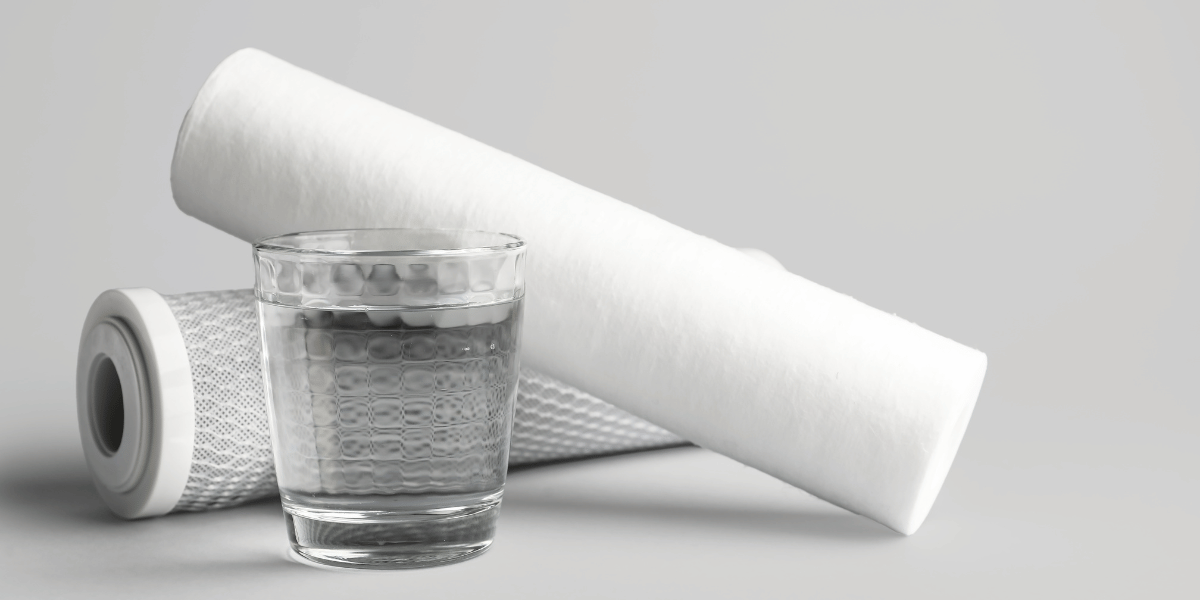What Are PFAs?
Have you heard of PFAs? They might sound like a complex acronym from the tech industry, but they stand for something far more troubling — Per- and...
.png?width=70&height=70&name=Stark_LogoMark%20(1).png)

Ensuring clean and safe drinking water is essential in today's world. Regulations such as the Safe Drinking Water Act in the United States are crucial in safeguarding the well-being of communities. It requires the EPA to set and enforce standards that protect public health. These standards act as a defense against potential contaminants like chemicals, animal waste, and bacteria. One particular concern is Per- and poly-fluoroalkyl substances (PFAS), also known as "forever chemicals". These substances are extremely persistent in the environment and have been linked to metabolic and immune disorders, as well as certain cancers. This has sparked conversations about the necessity of home water purification systems. Let's explore the different types of water purifiers, their filtration capabilities, the benefits they offer, and the things you should consider before investing in one for your home.
If you are looking to purify your water, there are plenty of options available for homeowners to choose from. Let's start off with whole home filtration systems. These systems act as the ultimate guardians of your water supply, filtering every single drop that enters your home. While they do a great job at removing sediment, their ability to eliminate other contaminants like volatile organic compounds, such as air pollutants and insect repellants, can vary. The level of filtration can be adjusted, with more advanced systems boasting higher contaminant removal, although they may come at a higher cost.
For a more targeted approach, under-the-sink filters are a great choice. These filters provide filtration specifically for one faucet, but they may require some plumbing work and a bit more investment. If your focus is solely on purifying drinking water, standalone filters are the way to go. These filters are conveniently incorporated into pitchers or jugs, making the water purification process a breeze without the need for installation. Lastly, shower head filters are a discreet and effective way of ensuring cleaner bathing water. These filters are integrated seamlessly into your daily routine with no additional plumbing work required.
Finding the right filtration system for your home can be overwhelming, but the key factor lies in the type of filter it uses. When it comes to public health standards, the Centers for Disease Control and Prevention recommends filters certified by the National Sanitation Foundation (NSF). These certified filters undergo rigorous testing and are held to high-quality standards.
An NSF rating of 41 is focused on improving taste and removing odors, while a 53 rating is specifically designed to eliminate parasites like Cryptosporidium and Giardia, which can be harmful to your health. For a more advanced level of filtration, an NSF rating of 58 indicates the use of reverse osmosis filters which effectively remove parasites, bacteria, viruses, and a wide range of chemical contaminants.
Not to be surpassed, a 62 rating represents distillation systems that excel in eliminating parasites, bacteria, viruses, and various chemical pollutants. Whether it's taste and odor improvement or comprehensive contaminant removal, there's a certified NSF filter to meet your needs and protect your health.
A home water purification system offers numerous benefits that go beyond providing clean drinking water. While regulations aim to minimize the presence of contaminants, they may not completely prevent their infiltration into our water supply. Heavy metals, known for their detrimental effects on health, have been associated with conditions such as cardiovascular disease, diabetes, cancer, and neurological disorders. By adopting a home water purification system, you can ensure the purity of your water and safeguard your well-being against these potential risks.
Robust reverse osmosis (RO) and distillation systems serve as a strong defense against these harmful contaminants, elevating the quality of drinking water. Equally noteworthy is the impact of purified water on the gut microbiome, as reducing exposure to heavy metals protects this vital regulator of immune and nervous system balance.
The body's first line of defense - your skin- can be permeated by contaminants in water, potentially causing harm. Exposure studies have shown the hazards of skin contact with these substances, but the absorptive capacity of the skin is still not well understood. Luckily, by implementing water purification systems, you can protect yourself and your family from these stealthy assailants.
While systems like RO and distillation effectively filter out impurities, they also strip water of vital minerals. It's ironic that while we worry about the effects of contaminants, not consuming enough essential minerals can lead to health problems. Decreased calcium levels increase the risk of fractures, while a lack of magnesium is linked to sudden death, motor neuron diseases, and certain cancers. Even in cooking, using demineralized water can unintentionally deplete essential nutrients from our food. Taking a conscientious approach involves considering remineralization such as adding trace mineral drops to restore balance to the water and ensure overall health.
While whole-home filtration systems may seem comprehensive, it's important to consider practicality, as these options both take time and money to implement. Not all water entering our homes requires purification. Instead, targeted filters specifically designed for drinking and bathing water can effectively reduce chemical exposure. To enhance water purity, consider options such as reverse osmosis (RO) and distillation. However, it's crucial to strike a balance, because these methods also remove essential minerals. In the pursuit of cleaner water, it becomes clear that this is a crucial step towards healthier homes and lives.
Sources

Have you heard of PFAs? They might sound like a complex acronym from the tech industry, but they stand for something far more troubling — Per- and...

Is red wine a health elixir hidden in plain site or a cleverly disguised toxin? For years, the debate has raged on. Many believe that a glass of red...

In the age of the internet it seems like people will try just about anything to look their best, especially when it comes to skincare. Despite an...